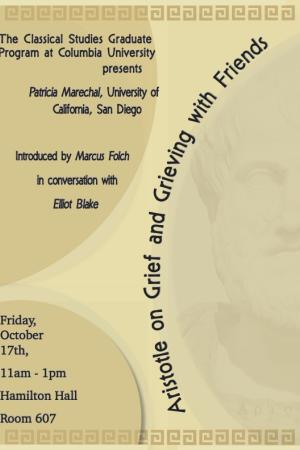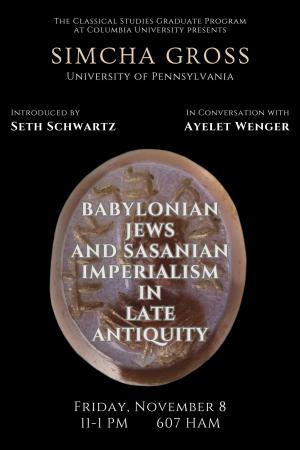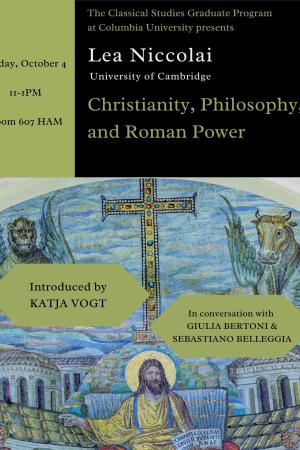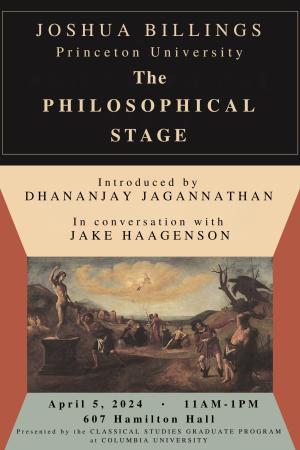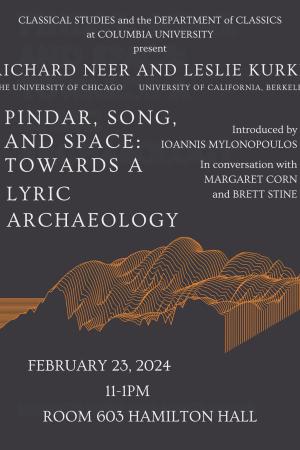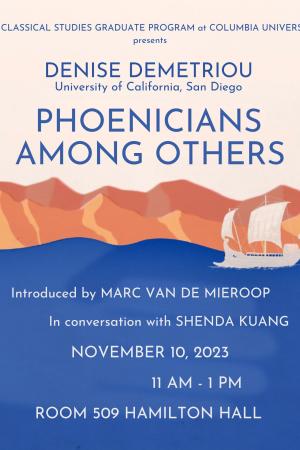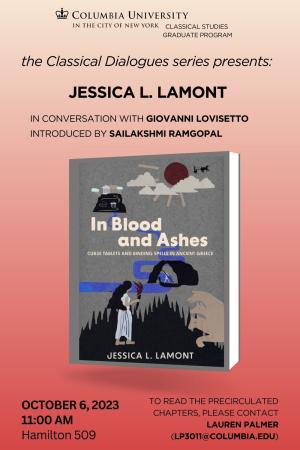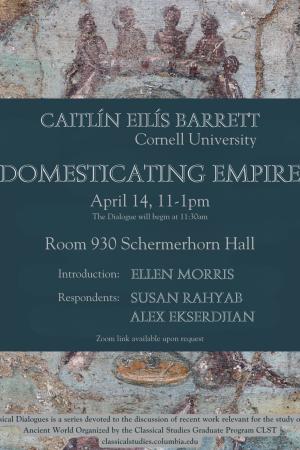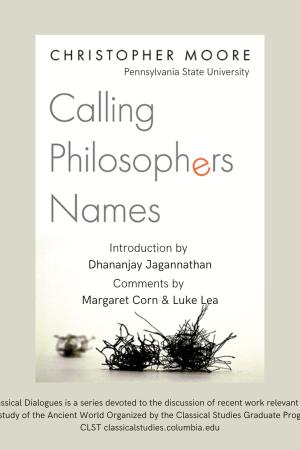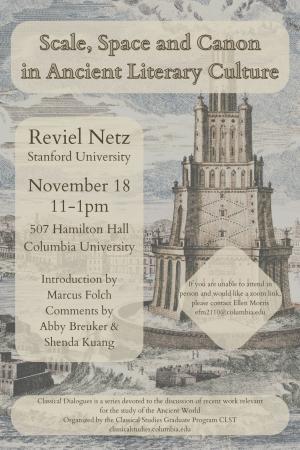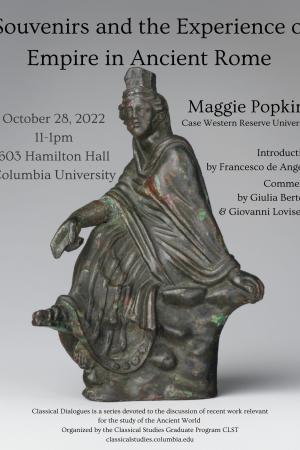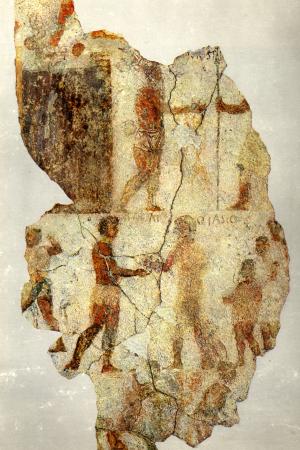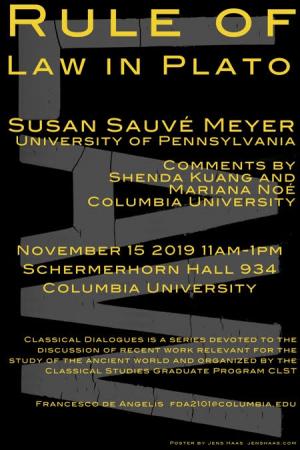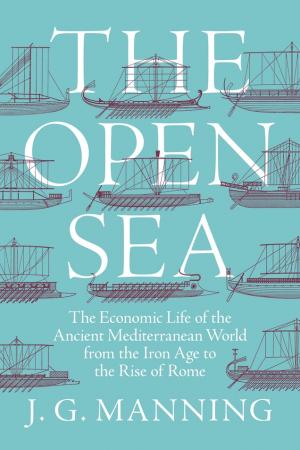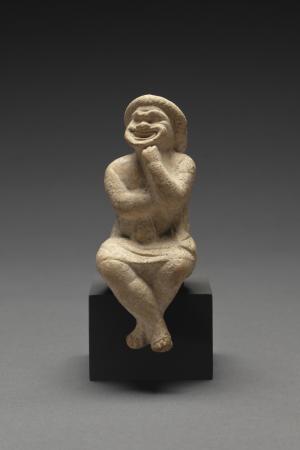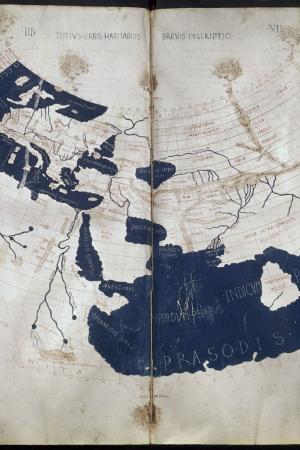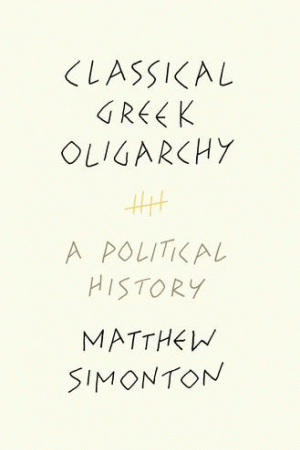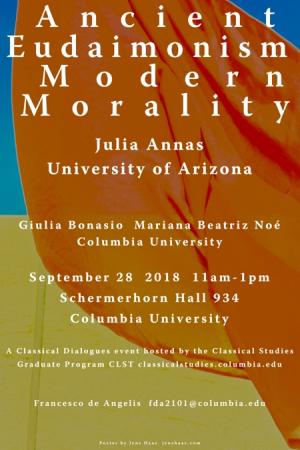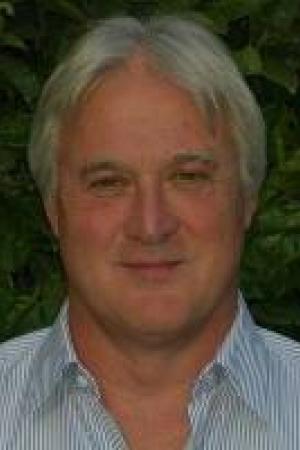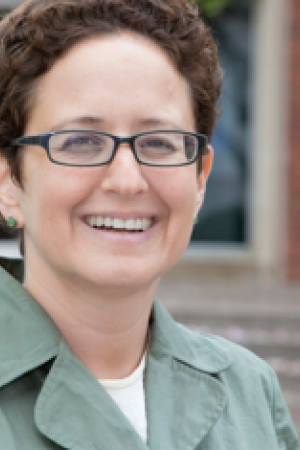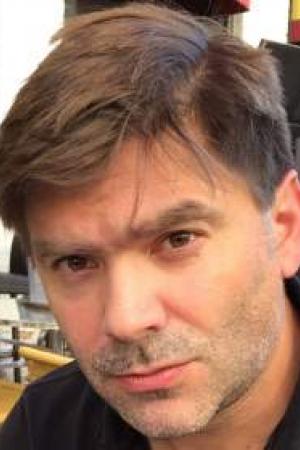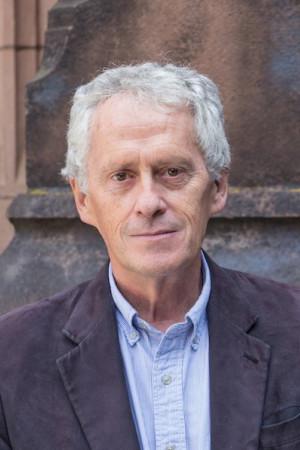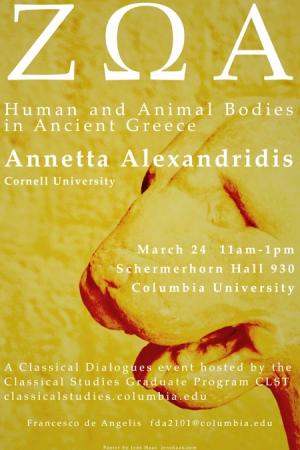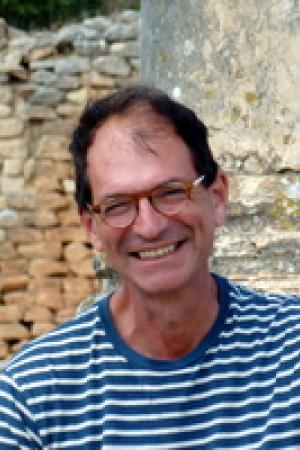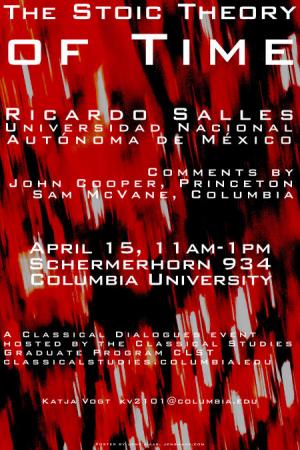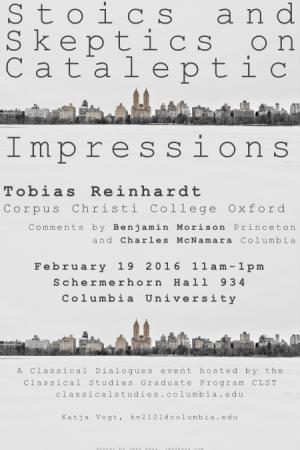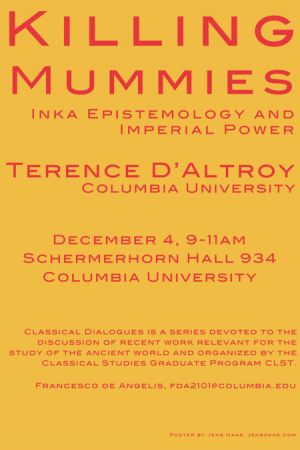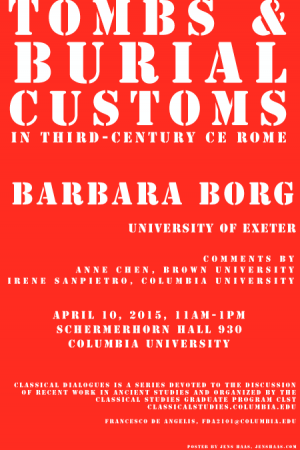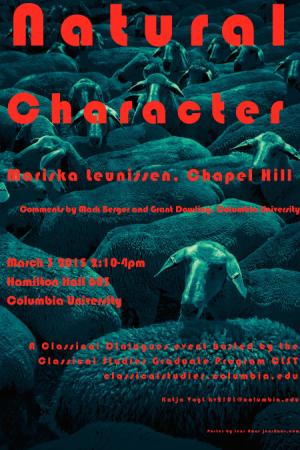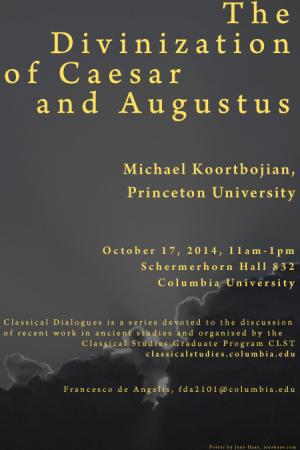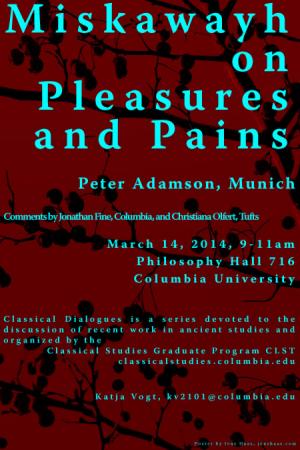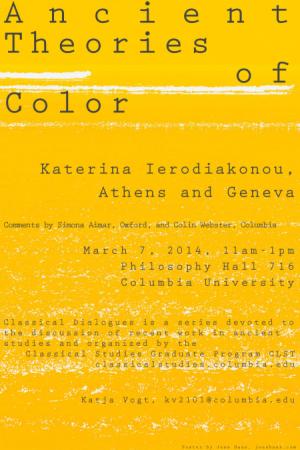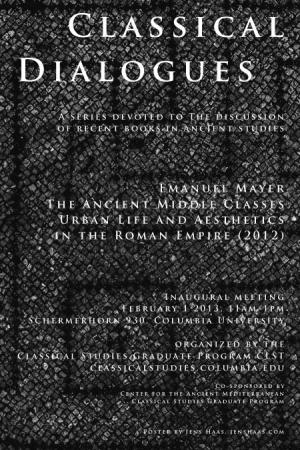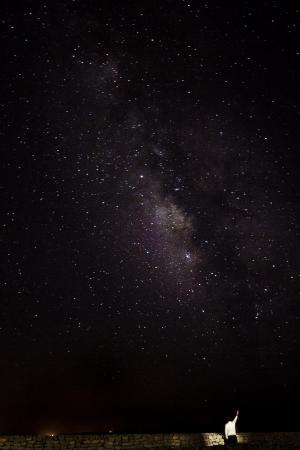 Void and Space in the Thought of the Presocratics, Plato, and AristotleBarbara Sattler Ruhr-Universität BochumOctober 30, 2020 - October 30, 2020
Void and Space in the Thought of the Presocratics, Plato, and AristotleBarbara Sattler Ruhr-Universität BochumOctober 30, 2020 - October 30, 2020
11:00am - 1:00pm -
Columbia University
As part of its Classical Dialogues series, the Classical Studies Graduate Program at Columbia University is pleased to welcome Barbara Sattler, Professor at the Ruhr-Universität Bochum. Professor Sattler is author of the monograph, The Concept of Motion in Ancient Greek Thought - Foundations in Logic, Method, and Mathematics (Cambridge University Press, 2020). On October 30th, 11am-1pm, she will discuss her recent work on the idea of the void in ancient Greek thought. Respondents: Margaret Corn (Columbia, Classical Studies) and Jake Haagenson (Columbia, Classical Studies). This event will be held virtually through Zoom. Please see below for an abstract.
The notion of the void is of crucial importance for the development of thinking about space in ancient Greece. It captures the idea of something that is either free from body or opposed to body, and fulfils some task necessary for bodies – void separates bodies from each other, allows them to be located somewhere, accounts for them being rare in opposition to dense things, or allows for the motion of bodies. In this paper, Sattler looks at the first appearance of the idea of a void in the Pythagoreans, Melissus and the atomists, and the way in which employing it gradually established a clear difference between matter and space. She then briefly analyzes what role it plays in Plato’s account of the cosmos in his Timaeus before discussing the heavy attacks on the notion of the void that we find in Aristotle’s Physics.
NB: All Fall 2020 Classical Studies events, including the Classical Dialogues, will be held virtually through Zoom. Those interested in participating may contact Professor de Angelis via email to get a copy of the paper and the Zoom link.
In its Classical Dialogues series, the interdepartmental Classical Studies Graduate Program CLST at Columbia University invites authors of recent work in ancient studies that is exemplary for the kind of study that CLST aims to foster. All faculty and students at Columbia and beyond are cordially invited. CLST students are required to read carefully at least one chapter or article in advance and prepare questions and comments for discussion.
